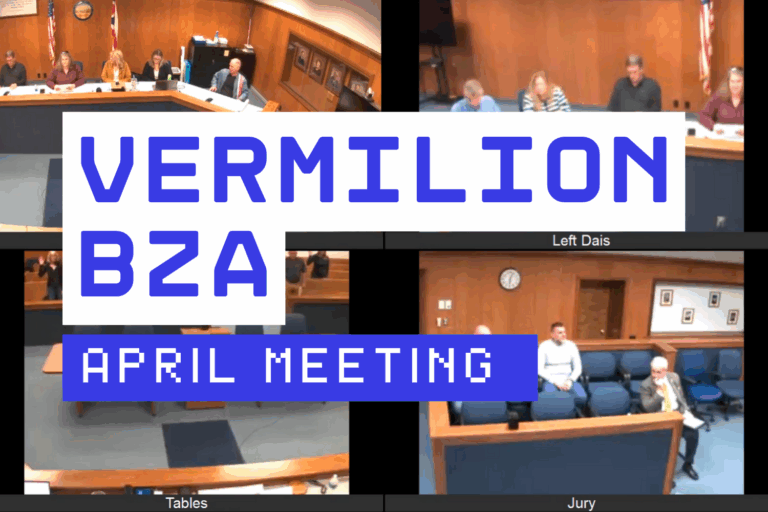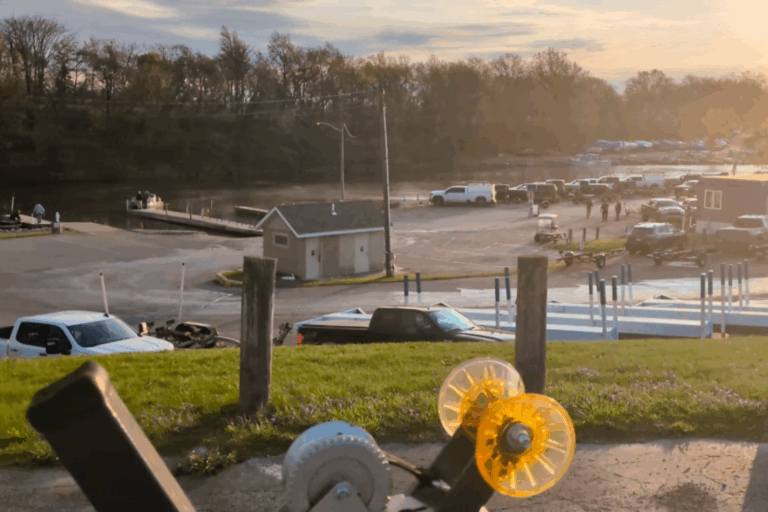
On a quiet evening, Ohio Governor Mike DeWine signed House Bill 315 into law, allowing police departments to charge up to $75 per hour, capped at $750, for requests involving bodycam, dashcam, and jail surveillance videos. While this legislation has sparked debate across the state, Vermilion’s Police Department offers a local perspective rooted in transparency and community trust.
A Commitment to Accessibility
Vermilion Police Department Chief Chris Hartung has been clear about his stance on this new law. “I have no plans to charge anyone,” he stated in response to inquiries about potential fees. For years, Vermilion has prioritized public access to police footage by providing free links for viewing.

Hartung emphasized that his department will not charge Vermilion residents for records requests, remaining committed to maintaining transparency. However, he acknowledged the challenges posed by high-volume requests from commercial entities, such as bodycam websites or YouTube creators.
Balancing Transparency and Costs
The Chief explained that large-scale requests—sometimes involving 10 to 15 videos monthly—can strain departmental resources. The process of preparing video footage involves labor-intensive tasks, including redaction, software usage, and secure file-sharing. Occasionally, legal reviews add to the expense.
While Chief Hartung is open to charging fees for these commercial, high-volume cases, he stressed that such charges would not apply to the average Vermilion resident. “For the average person? Nope. I never have, and I never will charge for a records request,” he affirmed.
Statewide Implications and Concerns
Proponents of House Bill 315 argue it provides relief to departments overwhelmed by costly video requests. Groups like the Ohio Municipal League highlight that some requests come from content creators profiting from police footage, placing an unfair burden on law enforcement.
Critics, however, warn that the law could limit public oversight and transparency. Legal experts suggest that fees may discourage smaller media outlets and individual citizens from holding law enforcement accountable.
What It Means for Vermilion
Vermilion’s approach to the law underscores the community’s commitment to openness. By limiting fees to commercial requests, the Police Department ensures residents retain access to vital records without financial barriers.
As the law takes effect, Vermilion serves as an example of how small-town departments can balance fiscal responsibility with transparency. Chief Hartung’s position reflects the town’s values, offering a model for other Ohio communities navigating the new legislation.
What It Means Elsewhere in Ohio
Vermilion isn’t alone in its effort to prioritize transparency. The City of Cleveland, for instance, has also indicated that it will approach the new law cautiously, aiming to maintain public trust while managing costs. Cleveland officials have stated that they will evaluate requests on a case-by-case basis but do not anticipate charging for routine public records.
This approach aligns with the values of many departments that see transparency as a cornerstone of good policing. However, in larger municipalities like Cleveland, the volume of requests can be significantly higher, creating unique challenges. They expressed in a recent public statement that they have no plans to charge either. The passage of the law helps challenged departments balance public access with the cost of processing, redacting, and securely sharing footage.
Elsewhere in Ohio, reactions have been mixed. Some smaller departments, with fewer resources, view the law as a necessary tool to recoup expenses. Others worry about the potential for the fees to discourage transparency, particularly in cases where public oversight is most needed.
While the new law raises important questions about access and accountability, Vermilion’s proactive approach demonstrates that transparency and resource management can coexist. The community can rest assured that their Police Department remains steadfast in its commitment to openness and trust.





